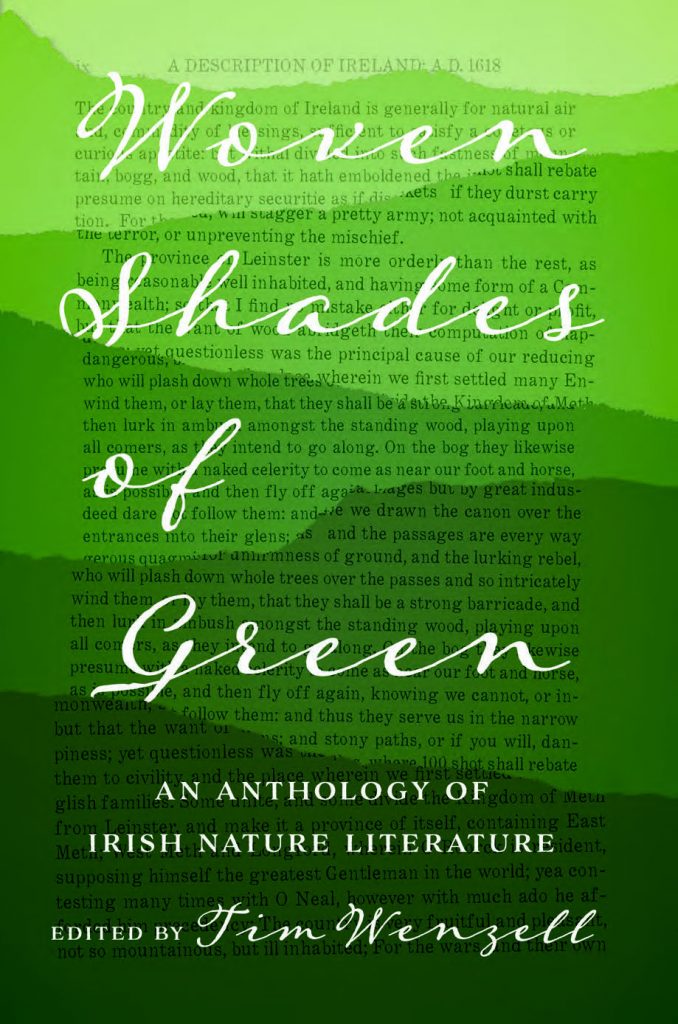Guest blog post by BUP author Tim Wenzell in recognition of University Press Week 2019

As humanism has evolved over the centuries, it has maintained and nurtured itself through empathy—having it, expressing it, and passing it on. In the humanities and literature, passing it on through the written word, through poetry, fiction, and non-fiction has functioned as a way of inducing action through reading and thinking:
*Upton Sinclair wrote The Jungle to expose the appalling working conditions in the meat-packing industry. His description of rotten and contaminated meat, and the dehumanizing treatment of immigrants, shocked the public, all the way up the ladder to President Teddy Roosevelt, and led to the busting of the beef trusts and new federal food safety laws.
*Steinbeck wrote The Grapes of Wrath as a means of communicating the flawed system of growing and distribution (refusal of crop rotation crucial to the soil for profit = Dust Bowl) present in 1930s America. Political and activist movements focusing on the plight of migrant workers arose from this increased awareness from reading this important novel. Steinbeck stated that he wrote the novel with the express intention of shaming those in power responsible for the misery of the Great Depression. Steinbeck said, ”I’ve done my damndest to rip a reader’s nerves to rags.”
*Rachel Carson wrote Silent Spring and the environmental movement exploded across American consciousness, turned the light on environmental destruction for the sake of profit, and paid attention to chemicals and poison being dumped into the air and water. It was a book to which Senator Gruening remarked, “Every once in a while in the history of mankind, a book has appeared which has substantially altered the course of history.”
But can books alter history today in the same manner, or at least in the same large increments, that they did in the past? With so many books to read now, and so many ways to read them, is there not enough time left to think and act? More specifically, in the wake of Rachel Carson over half a century ago, how can we, as stewards of an environment that is rapidly collapsing on us, accomplish the task of getting the public to read, think, act?
Silent Spring was a wake-up call and frightening for sure. But do we, as would-be stewards of the environment, need to frighten in order to get the public to act? While climate change and its implications can clearly frighten, and we have been saturated by this from climatologists and ecologists, from social media to academic presses, is fear enough in the 21st century to alter the course of history? While action is being taken to combat climate change, attention paid to these concerns has been diluted and supplanted by other threats and spectacles that take up more room in the news than a changing planet, fueling more localized fears of economic downturn, of mass shootings, of illegal immigration, among others. Because of these distractions, climate change loses its rightful place as Number One imminent threat to humanity.
This is the direction to which humanism must now gravitate: empathy toward the non-human, through an understanding that the non-human informs the human. Instead of relying solely on climatologists and ecologists delivering facts (and with them fear), another approach might be working to increase empathy. Instead of attempting to provoke thinking and action through fear of a planet turning against us by our own design, humanists are uniquely positioned to influence thought and action by teaching, writing about, and reading writers who focus on the natural world. In so doing, our students and readers may come to a more organic understanding of what is being lost. Humanists can make readers lovers of diverse cultures, but through attention to the literatures and landscapes of those cultures, rather than through fearmongering.
This was the purpose of writing and editing Woven Shades of Green: An Anthology of Irish Nature Literature (Bucknell University Press, 2019). Ireland is one small country on the planet, no bigger than the state of Maine, but culturally and historically it is much larger than that—and geographically, too, as one of the most naturally diverse and beautiful countries on the planet. Its geography has had an outsized influence on Irish culture, especially its literature. The anthology moves through time and nature to see, from a humanistic perspective, the relationship between Irish culture and the natural world, presenting a chronicle of voices from the early Irish monks in a forested Ireland to the voices of modern poets and naturalists who speak across a rapidly changing landscape of urban sprawl. All speak from a love of the natural world; this thread unites these writers as a culture and a people. Finally, a collection like this can inspire efforts toward the preservation of Ireland’s natural world; indeed, the anthology closes with a list of environmental organizations in Ireland.
As stewards of the environment, we need to provide more attention to nature literature everywhere, because it is everywhere. As a humanist, writing a book about nature literature that pertains to a particular geography is a way to zone in on environmental issues within that geography by displaying its cultural artifacts together in one place, chapter by chapter through time, as a testament to the living, breathing power of that natural world. Perhaps reading about the natural world will inspire action, fueled by empathy and a love of nature, rather than by fear. This direction in humanism is framed and defined by the non-human, by geography and change. The history and stories of humanity, told from particular landscapes in flux and in danger of disappearing, are vital. Without those particular landscapes, there is no humanism because there is no humanity.
Tim Wenzell
Associate Professor
Department of Humanities
Virginia Union University
Read posts from other presses in honor of UP Week 2019:
Oregon State University Press: http://osupress.oregonstate.edu/blog
University of Minnesota Press: http://uminnpressblog.com
University Press of Mississippi: https://www.upress.state.ms.us/News
Harvard University Press: https://harvardpress.typepad.com/hup_publicity/
University of Toronto Press: https://utorontopress.com/ca/blog